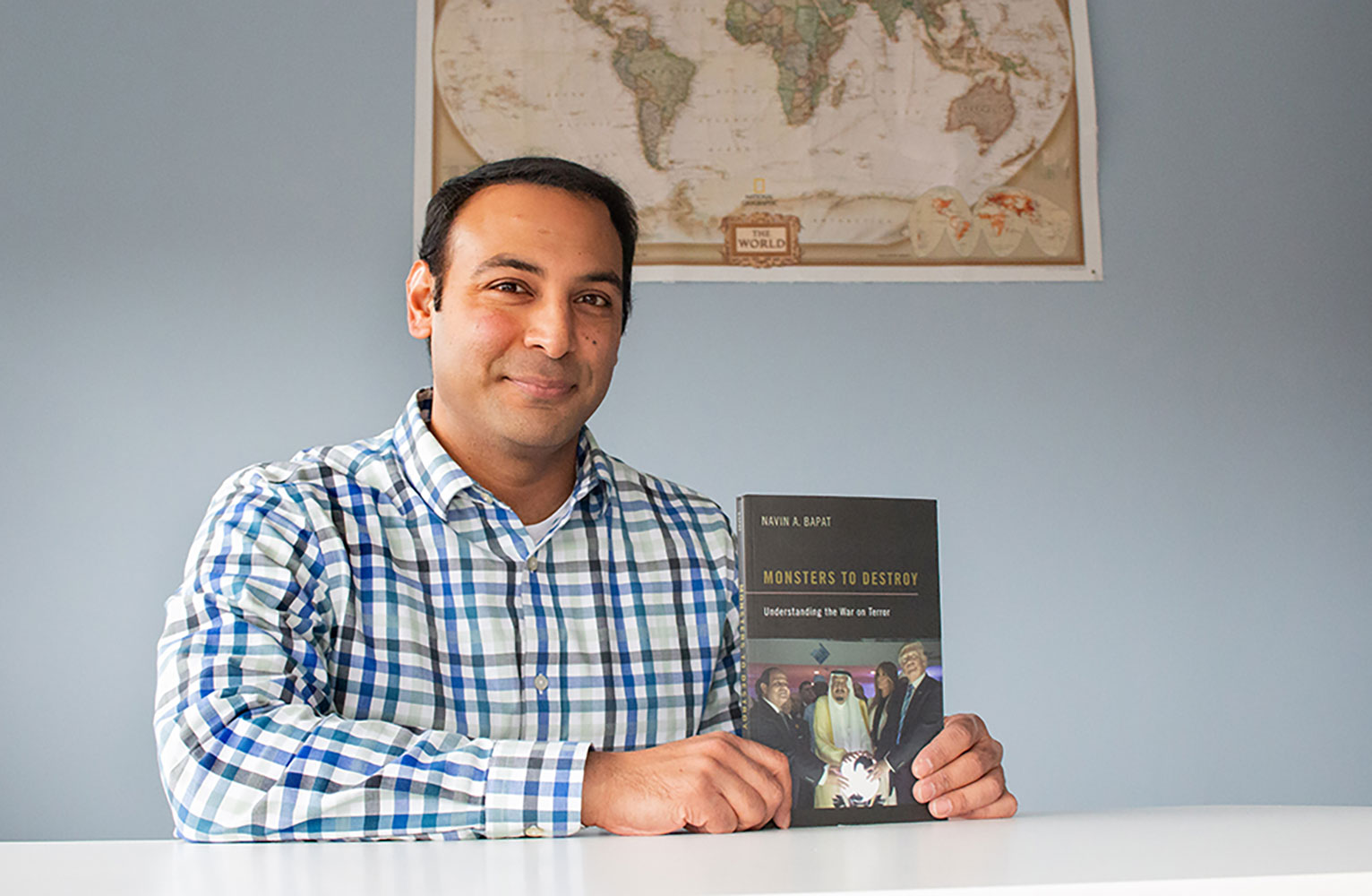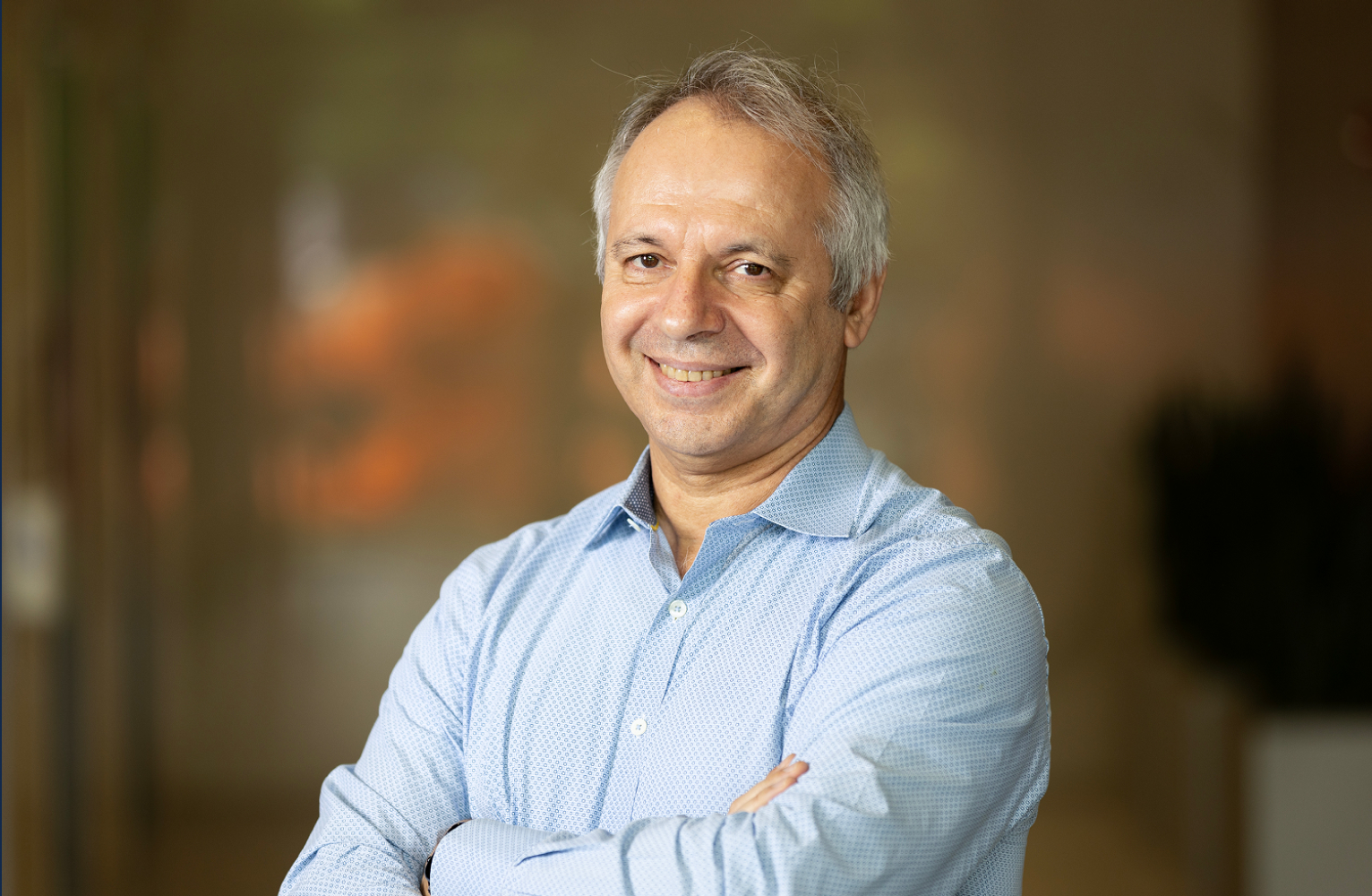
Navin Bapat, an expert on global terrorism, holds a copy of his book, Monsters to Destroy: Understanding the War on Terror. (Photo by Kristen Chavez)
Navin Bapat, chair of the Peace, War and Defense curriculum and Dowd Professor of Peace and War in Political Science in the College of Arts and Sciences, on the value of teaching students about international conflicts and diplomacy
Navin Bapat is an Indian American who grew up hearing his parents talk frequently about terrorism. At the time terrorist attacks were more common in India, but he rarely heard about terrorism concerns in the United States. Then, when he was a graduate student, the 9/11 attacks changed that and launched the global war on terror.
As Bapat studied terrorism, he learned that countries often seem to have an outsized view of the threat posed by terror. While some terrorist attacks, like the 9/11 attacks and the recent attack in Israel by Hamas, do pose a significant threat and bring mass casualties, these events are the exception and terrorism is actually quite rare. The discrepancy between the statistical likelihood of being harmed by terrorism and the enormous emphasis countries place on fighting terror led Bapat to research many aspects of terrorism, investigating domestic and transnational terrorism, American foreign policy, economic sanctions related to terrorism, and terrorism in African countries.
Bapat also teaches a course on terrorism in which he regularly gives students a prompt about a hypothetical conflict and asks them to develop a response to address the issue, with the goal of training them to engage in diplomacy and think critically about conflicts in international politics.
Why do students need hands-on experience as they study international conflicts?
BAPAT: Many of my students will make their way into foreign policy at some point in their career, so the sooner they learn how to thoughtfully engage with these difficult topics the better. I always tell my students that if there were easy answers to international conflicts, they would have already been resolved. I don’t give students very long to develop their response, which is important because in the real-world they will need to thoroughly consider their response but will have to make decisions very quickly.
The biggest thing that I like to see from my students is that they are examining the tradeoffs in foreign policy. Any action that a country takes against terrorism has a consequence. I’m looking to see that they are weighing the cost of potential responses — whether they suggest using force against a terrorist group, ignoring an issue or something in between. My students often come to the conclusion that they should recommend a response in which the outcome isn’t necessarily what they want, but they recognize it is better than the alternatives.
Students have given feedback that responding to these hypothetical situations makes the principles of diplomacy feel more relevant. As they work through scenarios that are based on actual terrorist groups and activities, they are able to see how the things they’ve learned in class apply to these situations.
Distinguished and named professorships support renowned scholars and propel research at Carolina. These privately funded endowments help attract and retain the academic leaders of today, ensuring a state-of-the-art education for all Tar Heels.
As told to Audrey Smith ’10
Related Stories




